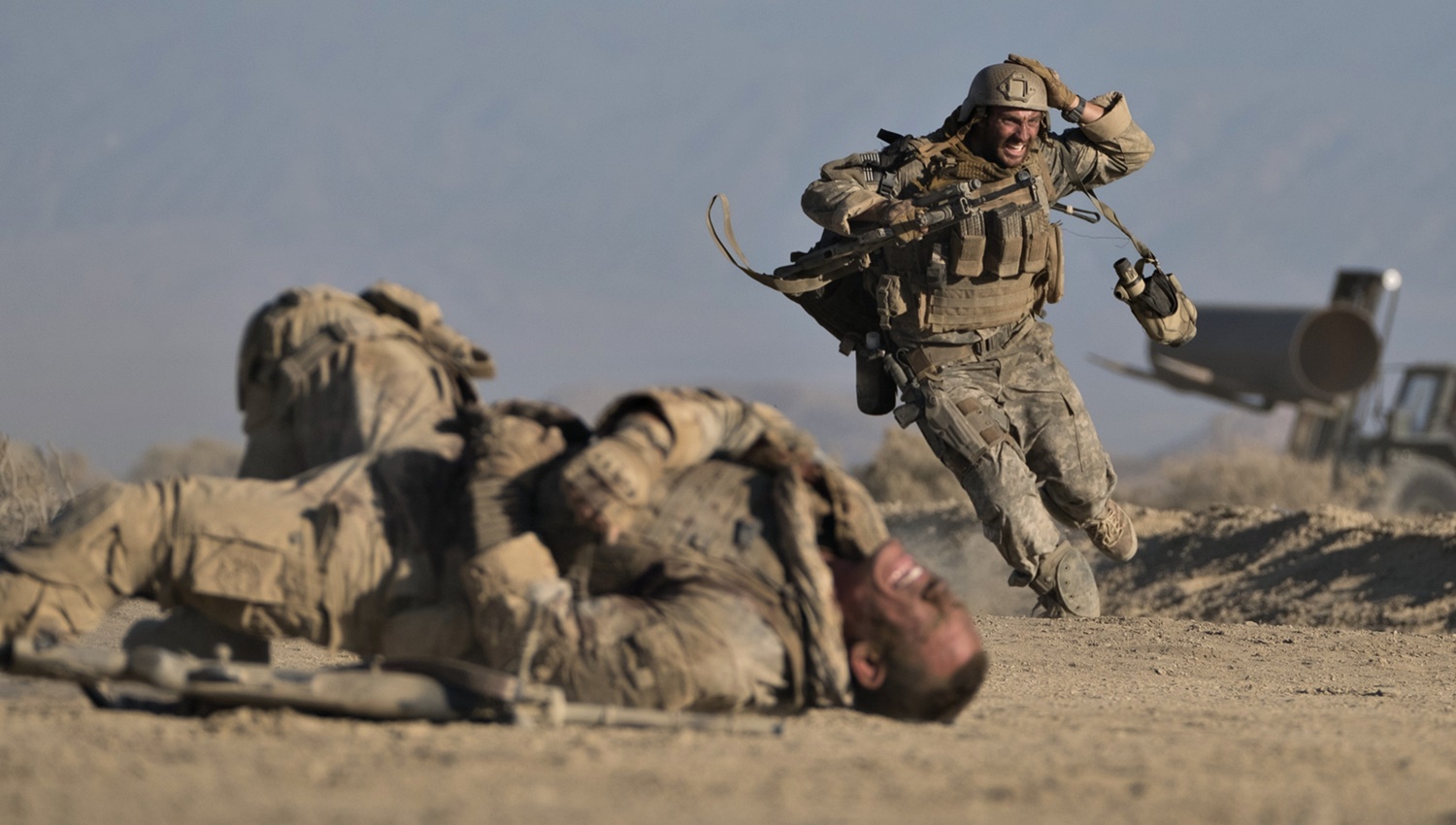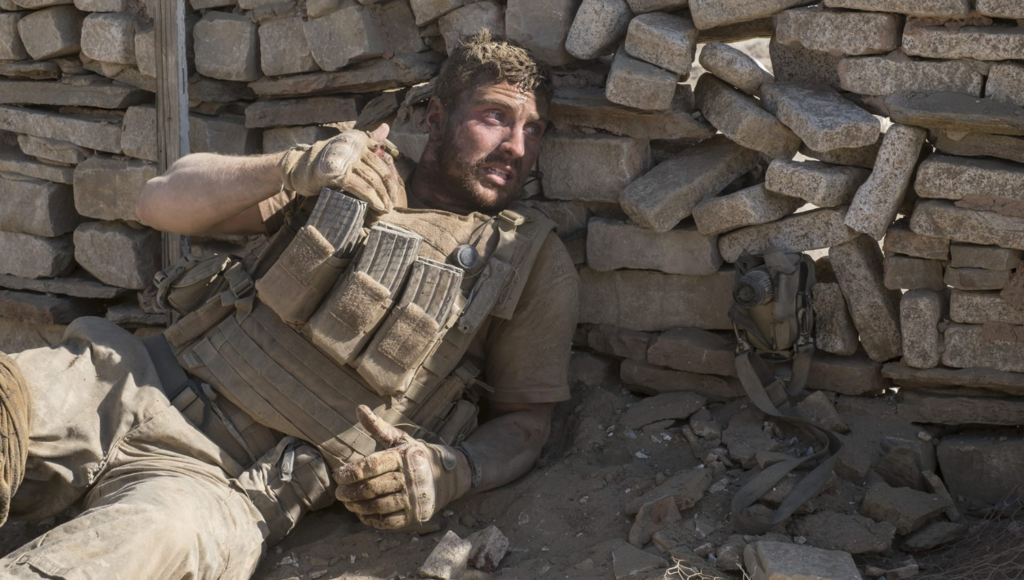Bourne Identity/Edge of Tomorrow director Doug Liman‘s attempt at something different with the new thriller The Wall is an experimental failure. For an action director who has taken his interest in thrills and suspense to a variety of genres, including Mr. & Mrs. Smith and Fair Game, I can appreciate seeking out a different type of experience. Liman got beat to the punch with The Wall, however, as similar, solo, desperate-desert, pocket thriller Mine starring Armie Hammer is a more creative and rewarding experience. Aaron Taylor-Johnson, fresh off his surprise Golden Globe win for Nocturnal Animals, brings a familiar Southern accent to the role of an injured and panicked American soldier. Taylor-Johnson just isn’t the guy you want to watch on screen by himself, despite a swift 80+ minute running time.
It’s 2007, President Bush has just declared victory in Iraq, and two American Soldiers have been watching a murder scene for over 12 hours. “I’m telling you, it’s a super sniper,” Isaac (Taylor-Johnson) says between tobacco spits. Matthews (John Cena) can’t believe that a single sniper could hit all the dead bodies they are looking at in the head from the distance they are calculating. Finally, Matthews decides to walk down to the bodies and get a better look; that’s when he’s hit. Isaac gets patched into the sniper who calls himself Juba, otherwise known as The Ghost or Angel of Death. Unable to move or see from his vantage point, the shooter demands Isaac keep talking; otherwise, he will render Matthew’s face unrecognizable.
A promising newcomer, Johnson doesn’t have the ability, nor the direction backing him up, to deliver a really compelling performance.
Dwain Worrell’s script intentionally portrays Isaac as an unlikeable character. He isn’t brave, not particularly witty or inventive in his dire situation. We certainly are not rooting for the sniper, and never see his face, only a handful of perspective shots from his vantage point. As a cinematic experience, we simply observe the events that play out, any and all emotions are revoked. Unlike Hammer’s recent performance in a similar dire situation, Taylor-Johnson’s Isaac does not remain calm; he shoots off more F-bombs than bullets, constantly whining and pining, sometimes in pain, other times at the impossible situation he’s fallen into. Neither Isaac nor Matthews positively represent the emotionally trained and stable soldiers we typically see on film.
The suspense relies entirely on Taylor-Johnson’s performance, which quickly becomes tedious due to the fact he’s nearly immobile, stuck behind a single wall. While a promising newcomer, Taylor-Johnson doesn’t have the ability, nor the direction backing him up, to deliver a really compelling performance. Juba has more patience to get what he wants than most audiences will have sitting through this film. I will give you a little hint: don’t expect things to wrap up in a nice bow, either. Part of Liman’s exercise here is to flip conventional wisdom, and that includes the ending.
Final Thought
An unsatisfying experimental pocket thriller.


